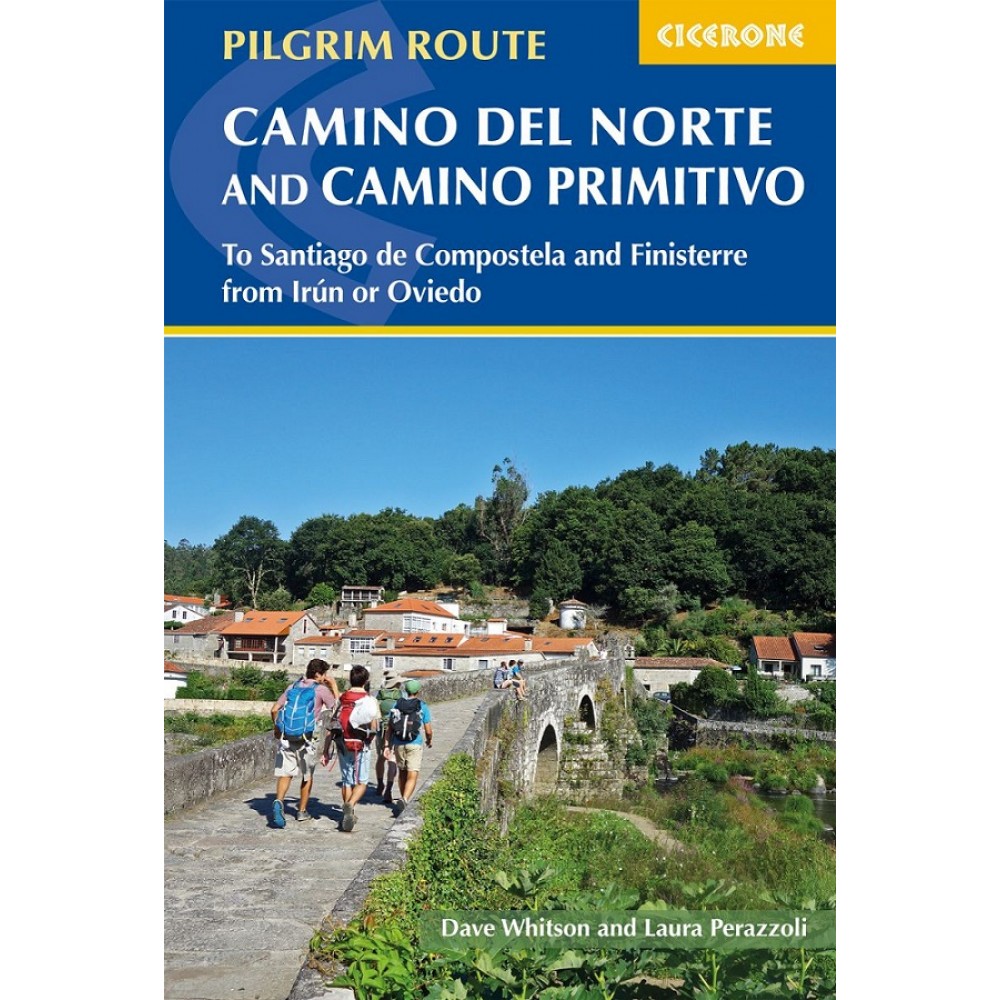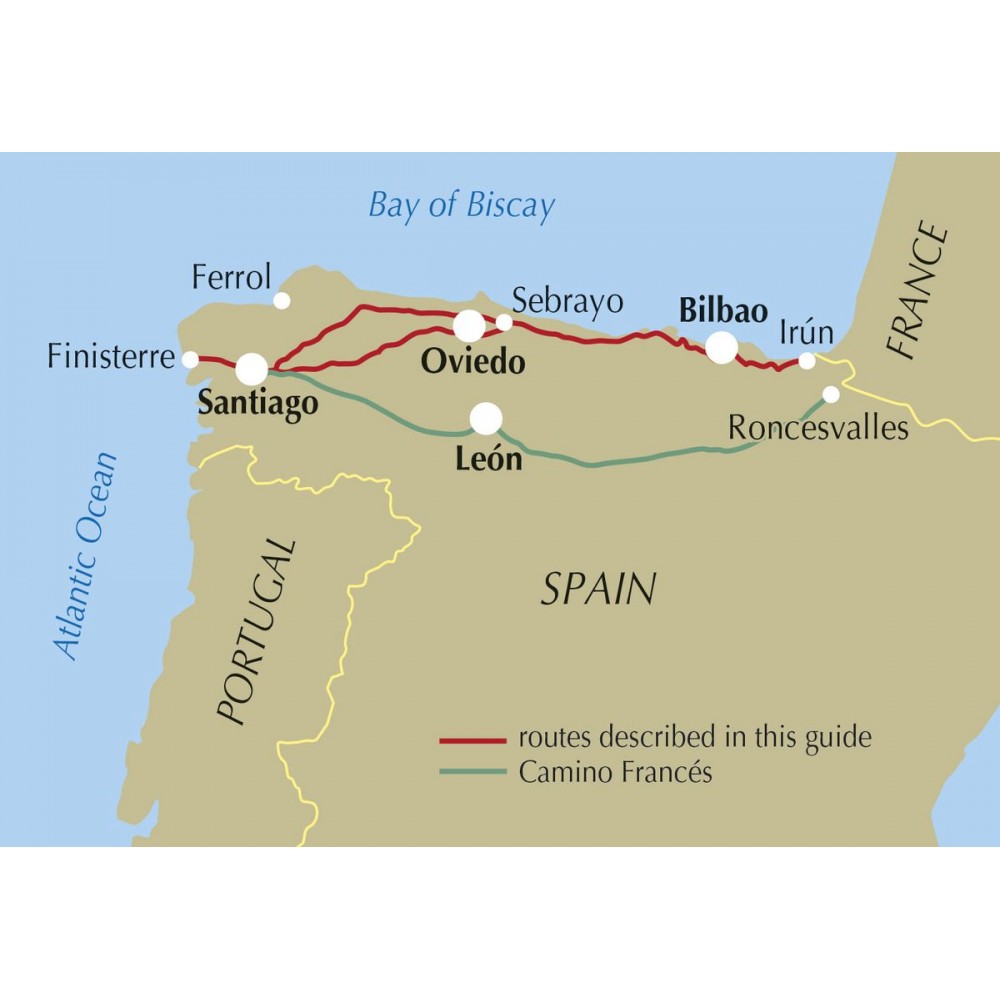


Cicerone Press 2023
- To Santiago de Compostela and Finisterre from Irun or Oviedo
Guidebook to walking the Camino del Norte and Camino Primitivo pilgrim routes to Santiago de Compostela in northwest Spain. The 820km Camino del Norte from Irún via Bilbao and Santander takes around 5 weeks to complete. The 355km Camino Primitivo takes about 2 weeks. Includes the Camino Finisterre from Santiago to the coast.
This guidebook describes the Camino del Norte and Camino Primitivo pilgrim routes to Santiago de Compostela in northwest Spain. The 820km Camino del Norte follows the coast from Irún, on the French border, through Bilbao and takes about 5 weeks to complete. The 355km Camino Primitivo splits off from the Camino del Norte near Villaviciosa and passes through Oviedo and Lugo en route to Compostela. It takes roughly 2 weeks to walk. This book also includes an overview of a continuation route from Santiago to Finisterre on the coast. Physically demanding, but not difficult, the caminos are best walked from late spring to autumn.
The guidebook is broken into stages of between 15 and 35km, most of which end in a town or village with a pilgrim albergue. There is indispensable information on facilities, food and lodging, 1:100,000 scale maps of the route and town maps for key locations. With notes on preparation and planning, travel and equipment, a list of useful sources of information, and a glossary, the book provides all you need to know to walk the camino.
Santiago de Compostela, whose cathedral houses the relics of St James, was one of three major centres of Catholic pilgrimage in the Middle Ages. In modern times the Caminos de Santiago have seen a resurgence in popularity, drawing walkers for all sorts of reasons. Passing through the Spanish regions of the Basque Country, Cantabria, Asturias, and Galicia, the northern caminos are popular enough to offer sufficient facilities, clear routes, and a community of pilgrims, without suffering the overcrowding of the Camino Frances.
Seasons
Summer/late spring/early autumn are best, because of the weather and because much of the accommodation closes in winter
Centres
Irún, San Sebastián, Bilbao, Santander, Gijón, Oviedo, Lugo, Santiago de Compostela
Difficulty
While certain stages of the Caminos may be quite physically demanding, the Caminos are largely approachable to any walker, since it is often possible to split difficult stages into shorter sections. Luggage transport services are available for walkers who need support.
Must See
The rocky coastline of the Basque Country, sandy beaches, the mountains of Astoria, rolling hills of Galicia; some of Spain's most dynamic cities, including San Sebastián, Bilbao, Santander, Oviedo, Lugo, Santiago; variety of architecture from Lugo's Roman walls, Romanesque and Gothic churches, to Bilbao's Guggenheim Museum